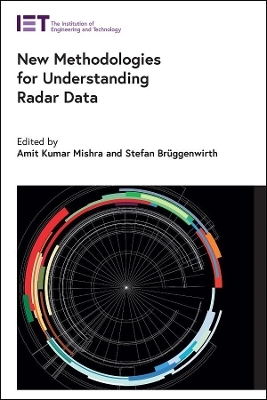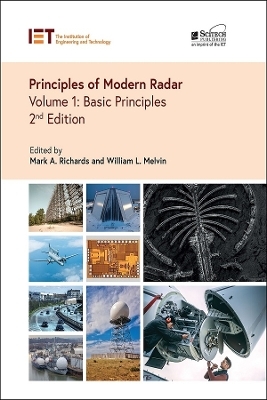
New Methodologies for Understanding Radar Data
Institution of Engineering and Technology (Verlag)
978-1-83953-188-0 (ISBN)
Research in the domain of radar signal understanding has seen interesting advances in recent years, mainly due to the developments around cognitive radar and the use of modern machine learning algorithms. This book brings together these strands of research into a coherent and holistic picture, presenting a consolidated approach to understanding radar signals.
The book begins with an introduction, which provides some historical and philosophical context to developing methodologies for understanding radar signals, introduces new techniques, and outlines the book's approach to the topic. The book is then divided into three parts: the first focusing on statistical and conventional methods for interpreting radar data; the second addressing compressed sensing and cognitive methods for understanding radar data; and the third covering machine learning methods for understanding radar and remote sensing data.
New Methodologies for Understanding Radar Data provides a complete, systematic guide to this multi-faceted topic for advanced researchers and professionals in radar engineering and signal processing.
Amit Kumar Mishra is a professor at the Radar Remote Sensing Group, University of Cape Town, South Africa. Amit has over 15 years of experience in radar and radio system design and signal processing. His current interests are around the use of cognitive architectures and advanced signal processing and machine learning to understand radar signals. He has published more than 35 papers in ISI listed journals and over 120 papers in peer reviewed conference proceedings. Stefan Brüggenwirth is head of the Cognitive Radar Department at the Fraunhofer FHR, Germany and NATO SET panel member-at-large for machine learning and artificial intelligence for RF-systems. Stefan studied aerospace engineering in Stuttgart and Munich, where he did his PhD in the development of a cognitive system architecture for UAV mission management. He spent 2.5 years at NASA Ames Research Center in Mountain View. His research focuses on radar target identification, signal processing architectures and self-learning radar systems.
Chapter 1: New methods for radar signal understanding
Chapter 2: Understanding FM radar signal through parameter estimation
Chapter 3: Non-linear estimation algorithms to analyse radar signals
Chapter 4: Understanding radar signals in a highly heterogeneous clutter environment
Chapter 5: Signature characteristics and discrimination of small airborne targets with a staring radar
Chapter 6: SAR coherent change detection
Chapter 7: Modern GPR target recognition methods
Chapter 8: Jet engine recognition via sparse decomposition of ISAR images
Chapter 9: Waveform design for efficient radar signal recovery
Chapter 10: Sea ice concentration estimation techniques using machine learning: an end-to-end workflow for estimating concentration maps from SAR images
Chapter 11: Cognitive radar for ground moving target imaging
Chapter 12: GAN4SAR: generative adversarial networks for synthetic aperture radar imaging of targets signature
Chapter 13: Micro-Doppler
Chapter 14: Kinematic and linguistic interpretation of human motion via RF signal analysis
| Erscheinungsdatum | 03.12.2021 |
|---|---|
| Reihe/Serie | Radar, Sonar and Navigation |
| Verlagsort | Stevenage |
| Sprache | englisch |
| Maße | 156 x 234 mm |
| Themenwelt | Technik ► Nachrichtentechnik |
| ISBN-10 | 1-83953-188-6 / 1839531886 |
| ISBN-13 | 978-1-83953-188-0 / 9781839531880 |
| Zustand | Neuware |
| Haben Sie eine Frage zum Produkt? |
aus dem Bereich


